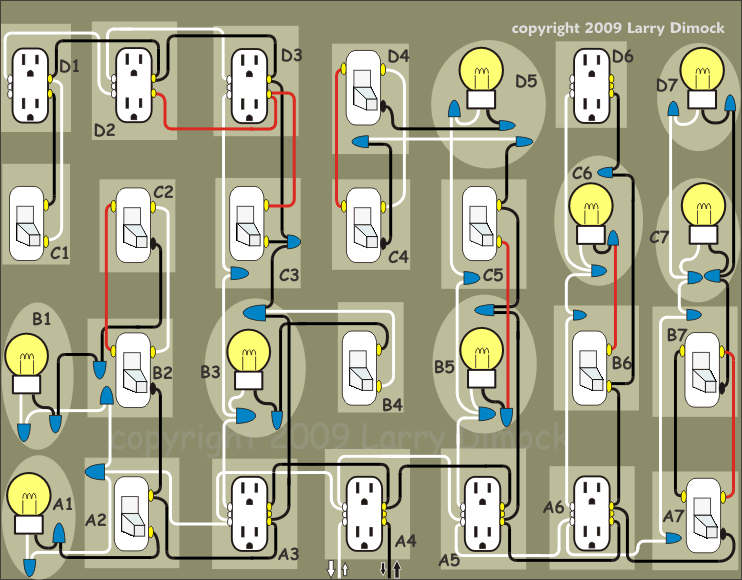Basic Residential Wiring Diagrams are essential tools for homeowners, electricians, and DIY enthusiasts alike. These diagrams provide a visual representation of the electrical system in a home, showing how wires are connected and where various electrical components are located. Understanding how to read and interpret these diagrams is crucial for anyone working with electrical systems.
Why Basic Residential Wiring Diagrams are Essential
Basic Residential Wiring Diagrams are essential for several reasons:
- They provide a visual representation of the electrical system in a home.
- They show the layout of the wiring and how different components are connected.
- They help ensure that wiring is done correctly and meets safety standards.
How to Read and Interpret Basic Residential Wiring Diagrams
Reading and interpreting Basic Residential Wiring Diagrams may seem daunting at first, but with some guidance, it can become easier:
- Start by familiarizing yourself with the symbols used in the diagram. These symbols represent different electrical components such as switches, outlets, and lights.
- Follow the flow of the wiring diagram from the power source to the various components. This will help you understand how electricity flows through the system.
- Pay attention to how wires are connected and where they are routed. Understanding the connections will help you troubleshoot any issues that may arise.
Using Basic Residential Wiring Diagrams for Troubleshooting
Basic Residential Wiring Diagrams are invaluable when it comes to troubleshooting electrical problems in your home:
- Refer to the wiring diagram to identify the location of specific components and connections.
- Use the diagram to trace the flow of electricity and pinpoint any areas where there may be a break in the circuit.
- By following the diagram, you can quickly diagnose and fix electrical issues without the need for guesswork.
Safety Tips for Working with Basic Residential Wiring Diagrams
When working with Basic Residential Wiring Diagrams, it’s essential to prioritize safety:
- Always turn off the power before working on any electrical system.
- Use insulated tools and wear appropriate safety gear, such as gloves and goggles.
- Double-check your work and ensure that all connections are secure before turning the power back on.
Basic Residential Wiring Diagram
Basic House Wiring | Non-Stop Engineering

Complete House Wiring Diagram with main distribution board | house

Basic House Wiring Diagrams Plug And Switch

Residential House Wiring Circuit Diagram – Wiring Diagram and Schematic

Basic Residential Wiring Diagrams

Electrical Wiring Residential Circuit Diagram
